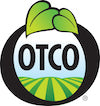Does a High Protein Diet Kill Your Ketosis?

If you’re looking to burn fat, you may have heard about kicking your body into ketosis—a state where it burns (excess) body fat for energy by way of eliminating carbs from the diet (the body’s preferred source of energy). But what about a high protein diet, something you may be using to boost your fitness goals? Does a high protein diet kick you out of ketosis? Or can it help?
When eating for a short-term ketosis diet, you may not be inherently eating a high protein diet. Instead you may be eating more vegetables and fats. But protein certainly plays a part in a ketosis diet.
One reason protein is so important on a ketosis diet is that protein-rich foods help you to feel fuller longer. While carbohydrates can digest quickly, leaving you hungry for more, protein-rich foods will fill you up even in small amounts (just see how hungry you are after a handful of nuts).
Protein is also more labor intensive for your body to digest, which means you actually burn more calories digesting protein than many other foods—and that’s calorie-burning you don’t have to do at the gym! The slower digestion process also contributes to feeling fuller longer, keeping you from caving into your carb cravings.
A high protein diet also helps to build muscle mass, which is going to displace fat in your body, even if the numbers on the scale don’t budge (muscle is more dense than fat so it can actually increase your weight even though you look and feel leaner and stronger).
Protein does increase insulin secretion, but not enough to kick you out of ketosis, says Dr. Briffa in his book “Escape the Diet Trap.”
According to the Keto Diet App, the simple way to determine how much protein you need to eat, follow this equation: “If your weight is in pounds, multiply it by 0.6 and 1.0 to get the minimum and maximum amount of protein in grams you should eat each day. If your weight is in kilograms, simply multiply it by 1.3 and 2.2 to get the same range.”
High protein diets can be helpful in ketosis and in general weight loss plans. But there are some noted risks to consuming too much protein, namely damage to the kidneys and liver. So, don’t overdo it. It’s best to only eat a ketosis diet for short periods of time. And always discuss diet plans with your primary care physician before starting.
image: joyosity
Leave a comment
Comments will be approved before showing up.


